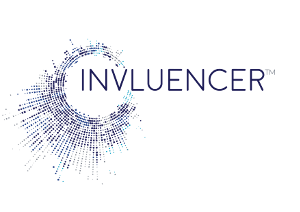A few weeks ago, over 10,000 people participated in the 100% online Global Hack against COVID-19. A key team member of Invluencer, Shimon Newman, participated in the Hackathon and was left deeply impressed. Shimon’s experience at the Global Hack, while overwhelmingly positive, also highlighted some of the key issues around funding of great ideas. Here are Shimon’s thoughts on his experience at the Hackathon.
The Good News
A successful hackathon is one where intelligence is massively crowd sourced in order to produce imaginative solutions to real-life issues. At Invluencer, we are building platforms whose goals are quite similar: crowdsourcing expertise and helping fund fantastic real-life solutions.
The Global Hack validated one of the core beliefs of the Invluencer team: that everybody has knowledge that can be valuable. It was incredible to witness as the Hackathon’s slack channels and zoom calls became populated with teams from all over the world. Over 700 ideas for COVID-19 solutions were crowdsourced (needs source) in just 48 hours from young professionals spanning all sectors
The sponsors of the Global Hack included the European Commission, The World Health Organization, The World Economic Forum, The Global Entrepreneurship Network, LinkedIn, TED, Reddit, Slack and Swedbank. This shows that the way that major institutions and governments source their solutions to real life issues are shifting. The involvement of these institutions clearly supports the idea that there is wisdom in the crowd, and that the correct incentives (in this case prize money, funding opportunities, and networking) can be used for sourcing such wisdom.
The Bad News
There were clear guidelines as to what a successful Hackathon application entailed. The spirit of Hackathons is fundamentally egalitarian: normally, teams all start with the same set of technology available. This was not the case for the Global Hack, which of course makes sense given the urgency of fighting COVID. Still, according to guidelines, everything shown had to be built in 48 hours; pitch decks and animations were not to be used, and preestablished teams were supposed to present only what was built within the allowable timeframe.
I participated in the Economics Track of the Hackathon and was excited to see what the other teams had built in such a short period of time. Unfortunately, as the finalists were announced on live stream, one thing became clear: the judges of the Economics Track were banks and Venture Capitalists, not do-gooders. As the pantheon of finalists were announced, many Hackathon participants were devastated to see pre-made pitch decks abound, teams that had already been funded previously to the Hackathon, and beautifully animated explainer videos. When it came down to it, although the Global Hack espoused a methodology that was geared towards “real hackers”, it was the shiny and what appeared to be ‘pre-established’ projects that, having an unfair advantage, ended catching the attention of the jury.
Shortly after the finalists were announced, one of the jurors in our Track posted a comment to the effect that while all the ideas contributed in the Hack were valuable, the jurors had to pick “winners”. The money had to go towards projects that had the right team, development, and production: in other words, the “shiny” ideas.
One thing was clear: The Hack was not an exercise in marketing for VCs to find opportune investments in the wake of COVID-19. The organizers and mentors truly were focused on what people could build within the 48 hours and explicitly discouraged presenting something already built or not focusing on what could be achieved in the context of the hackathon itself. However, when it came down to brass tacks, the VCs had to make a decision that was economically viable and feasible from a time to market perspective.
Conclusions
1. Knowledge based economies are changing
The way that companies and institutions source their data and solutions have already rapidly changed since the advent of Fiverr or Toptal. On-demand knowledge and talent are a weapon that any serious company will add to its arsenal for responding to the shifting landscapes of the fourth industrial revolution. In the wake of COVID and the way that it is already affecting higher institutions of learning, the ways that people can prove their expertise towards paying clients may shift as well. At Invluencer, we are creating a platform that allows anybody to monetize their knowledge by helping us perform due diligence on companies seeking funding. The experience of the Global Hack, and its success in crowdsourcing such diverse talent and solutions in such a short period of time, makes us excited about where we are headed.
2. What is good for VC may not be good for the world
The interests of current Venture Capital firms, no matter how diversified the portfolio or target founder demographic, are on making an exit. What it takes to make an “exit” in this era means that many good ideas are pushed to the side. In the context of a COVID hackathon, which is being used to respond to a real-life unfolding crisis, these priorities may be misaligned and lead to great ideas being ignored. At Invluencer we are creating an alternative to traditional Venture Capital with a focus on finding great propositions through our unique methodology. We hope to challenge the current issues inherent in funding of early stage companies and to help more great ideas thrive.

